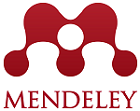PEMBELAJARAN BERBASIS PROYEK: TINJAUAN FILOSOFI PEMBELAJARAN ABAD 21
Abstract
Model Pembelajaran Berbasis Proyek (PJBL) direkomendasikan untuk meningkatkan kemampuan yang ingin ditumbuhkan melalui pendidikan pada abad ke-21 tetapi masih, diimplementasikan dengan sangat bervariasi dan perlu dibahas lebih spesifik meliputi efektivitas dan efisiensi termasuk bagaimana terapan di berbagai situasi dan kondisi. Tulisan ini bertujuan untuk menganalisis PjBL melalui tinjau filosofi untuk kemudian dapat dilakukan analisis terhadap problematika yang ada, untuk kemudian dihubungkan terhadap teori belajar agar dapat meningkatkan kemampuan belajar yang dibutuhkan. Penelitian ini didasarkan pada sebuah narasi pendekatan untuk menganalisis literatur, mengusulkan hubungan baru di antara konstruksi dan menciptakan tautan antara teori baru yang ada untuk memberikan dan wawasan yang lebih luas. Kami berpikir bahwa pembelajaran berbasis proyek harus sangat dipertimbangkan untuk menjadi tema pengembangan pembelajaran agar lebih mudah lebih mudah diterapkan sehingga hasil kemampuan belajar yang dibutuhkan pada masa kini dapat terpenuhi.
References
Boeree, C.G. (2006). Personality Theories: Hans Eysenck and Others. http://www.ship.edu/%7Ecgboeree/perscontents.html Akses 3 juni 2023 17.01 WIB
Dewey, J. (1897). My pedagogic creed. The School Journal, 54(3): 77- 80
Dewey, J. (1910). How we think. Heath.
Dumitrescu, C., Olteanu, R. L., Gorghiu, L. M., & Gorghiu, G. (2014). Learning Chemistry in the Frame of Integrated Science Modules – Romanian Student’s Perception. Procedia - Social and Behavioral Sciences, 116(2014), 2516–2520. https://doi.org/10.1016/j.sbspro.2014.01.603.
Freire, P. (2005). Pedagogy of the oppressed. The Continuum.
Global Partnership for Youth Employment. Enhancing Life Skills for Youth Employment: A Practical Guide to Designing Quality Programs; International Youth Foundation: Baltimore. MD, USA, 2014; Available online: (accessed on 1 May 2023).
Heitmann, G. (1996). Project-oriented study and project-organized curricula: A brief review of intentions and solutions. European Journal of Engineering Education, 21(2): 121-131.
Helyer, R., Wall, T., Sun, Q., and Kang, H. (2015). Infusing work-based learning with Confucian principles: A comparative perspective. Higher Education, Skills and Work-Based Learnin, 5(4): 323-338
Fischer, G. (2000). Lifelong learning—more than training. Journal of Interactive Learning Research, 11(3): 265-294
Jaakkola, Elina. (2020). Designing conceptual articles: four approaches. AMS Review, 10(1): 18-26.
Kilpatrick, W. H. (1918). The project method: The use of the purposeful act in the educative process. Columbia: Teachers College, Columbia University.
Kiswanto, H., Sunarno, W., dan Suparmi (2016). Pembelajaran Berbasis Masalah Menggunakan Metode Proyek dan Eksperimen Ditinjau Dari Kreativitas dan Kemampuan Berpikir Kritis Siswa. Jurnal Inuiri, 5(3)-57-65
Kooli, C. (2019). The philosophy of education in the sultanate of Oman: Between perennialism and progressivism. American Journal of Education and Learning, 4(1): 36-49
Kooli, C., Jamrah, A., and Al-Abri, N. (2019). Learning from quality audit in higher education institutions: A tool for community engagement enhancement. FIIB Business Review, 8(3): 218-228
Korkmaz., Gunes dan Kalayci, Nurdan (2021), Problem and project-based learning as an educational philosophy: A novel conceptual model for higher education. African Educational Research Journal, 9(3): 774-789.
Le Deist, F. D., DAN Winterton, J. (2005). What is competence? Human Resource Development International, 8(1): 27- 46.
Logan, R. M., Johnson, C. E., & Worsham, J. W. (2021). Development of an E-learning Module to Facilitate Student Learning and Outcomes. Teaching and Learning in Nursing, 16(2), 139–142. https://doi.org/10.1016/j.teln.2020.10.007
Mezirow, J. (2000). Learning as transformation: Critical perspectives on a theory in progress. The Jossey-Bass Higher and Adult Education
Ngalimun. (2016). Strategi dan Model Pembelajaran. Yogyakarta: Aswaja Presindo.
Nisa, Atika Rizki Khoirun dan Yuliawati, Fitri (2021) Analisis Penerapan Model Pembelajaran PBL (Project Based Learning) terhadap Proses Pembelajaran Siswa. WIDYACARYA: Jurnal Pendidikan, Agama Dan Budaya. 5(2), 175-182.
Nordahl, R., and Kofoed, L. B. (2008). Medialogy Design of a TransDisciplinary Education using a problem-based learning approach. In Proceedings of 36th European Society for Engineering Education (SEFI) on Quality Assessment, Employability & Innovation, 2 - 5 July, 2008 Aalborg, Denmark. Brill.
Nurtanto, M., Sofyan, H., Fawaid, M., & Rabiman, R. (2019). Problem-based learning (PBL) in industry 4.0: Improving learning quality through character-based literacy learning and life career skill (LLLCS). Universal Journal of Educational Research, 7(11), 2487–2494. https://doi.org/10.13189/ujer.2019.071128
Oksa, S., & Soenarto, S. (2020). Pengembangan E-Modul Berbasis Proyek Untuk Memotivasi Belajar Siswa Sekolah Kejuruan. Jurnal Kependidikan: Penelitian Inovasi Pembelajaran, 4(1), 99–111. https://doi.org/10.21831/jk.v4i1.27280
Ornstein, A. C., and Hunkins, F. P. (2018). Curriculum: Foundations, principles, and issues. Pearson.
Siemens, G. (2004). Connectivism. A Learning Theory for the Digital Age. Retrieved from https://jotamac.typepad.com/ jotamacs_ weblog/files/Connectivism.pdf
Sumarni, W (2015). The Strengths and Weaknesses of the Implementation of Project Based Learning: A Review. International Journal of Science and Research (IJSR), 4(3), 478-484.
Sun, Q. (2008). Confucian educational philosophy and its implication for lifelong learning and lifelong education. International Journal of Lifelong Education, 27(5): 559-578
Tan, C. (2018). Whither teacher-directed learning? Freirean and Confucian insights. The Educational Forum, 82(4): 461-474
Trianto. (2010). Model Pembelajaran Terpadu. Jakarta: Bumi Aksara.
Yükseköğretim Kurulu (YÖK) (2010). Türkiye yükseköğretim yeterlilikleri çerçevesi (TYYÇ). Retrieved from http://tyyc.yok.gov. tr/?pid=20 Available online: (accessed on 5 May 2023).
Yusriani, Arsyad, M., Arafah, K (2020, Februari). Kesulitan Guru dalam Mengimplementasikan Model Pembelajaran Berbasis Proyek pada Mata Pelajaran Fisika di SMA Negeri Kota Makassar [Paper Presentation]. Seminar Nasional Fisika PPs UNM, Makassar.
Wena, M. (2016). Strategi Pembelajaran Inovatif Kontemporer. Jakarta: PT Bumi Aksara,








